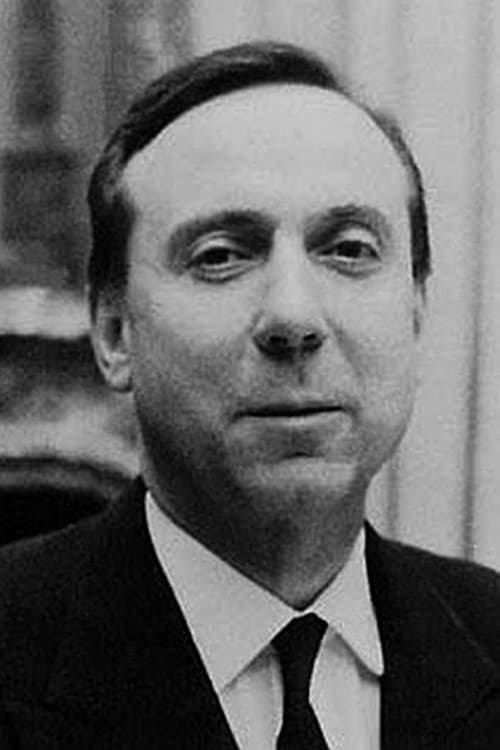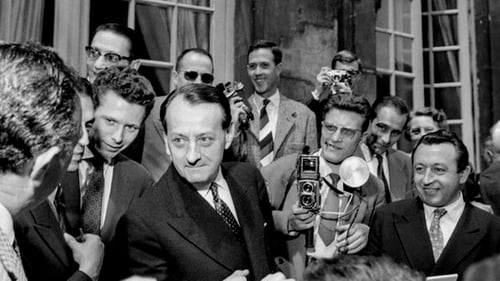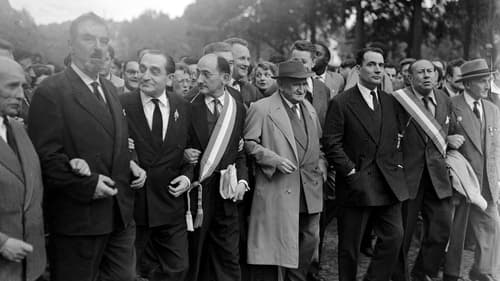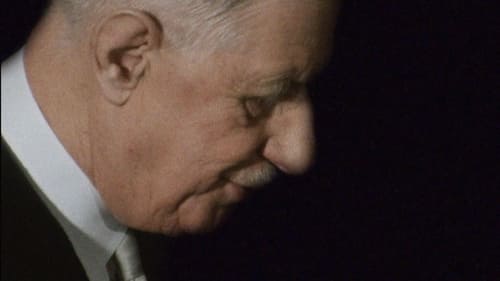Michel Debré
출생 : 1912-01-16, Paris, France
사망 : 1996-08-02
약력
Michel Jean-Pierre Debré (15 January 1912 – 2 August 1996) was the first Prime Minister of the French Fifth Republic. He is considered the "father" of the current Constitution of France. He served under President Charles de Gaulle from 1959 to 1962. In terms of political personality, Debré was intense and immovable and had a tendency to rhetorical extremism.
Debré was born in Paris, the son of Jeanne-Marguerite (Debat-Ponsan) and Robert Debré, a well-known professor of medicine, who is today considered by many to be the founder of modern pediatrics. His maternal grandfather was academic painter Édouard Debat-Ponsan. Debré's father was Jewish, and his grandfather was a rabbi. Debré himself was Roman Catholic.
He studied at the Lycée Montaigne and then at the Lycée Louis-le-Grand, obtained a diploma from the École Libre des Sciences Politiques, and a PhD in Law from the University of Paris. He then became a Professor of Law at the University of Paris. He also joined the École des Officiers de Réserve de la Cavalerie (Reserve Cavalry-Officers School) in Saumur. In 1934, at the age of twenty-two, Debré passed the entrance exam and became a member of the Conseil d'État. In 1938, he joined the staff of the Economy Minister Paul Reynaud.
In 1939, at the beginning of the Second World War, Debré was enlisted as a cavalry officer. He was taken prisoner in Artenay in June 1940 during the Battle of France but managed to escape in September. He returned to the Conseil d'État, now under the administration of the Vichy regime and was sworn in by Marshal Philippe Pétain. In 1942, he was promoted to maître des requêtes by the Minister of Justice. After the German invasion of the free zone in November 1942, Debré's political Pétainism disappeared, and in February 1943, he became involved in the French Resistance by joining the network Ceux de la Résistance (CDLR).
During the summer of 1943, General Charles de Gaulle gave Debré the task of making a list of prefects, ho would replace those of the Vichy regime after the Liberation. In August 1944 de Gaulle made him Commissaire de la République for Angers, and in 1945, the Provisional Government charged him with the task of reforming the French Civil Service. Debré created the École nationale d'administration, whose idea was formulated by Jean Zay before the war.
Under the Fourth Republic, Debré at first supported the Democratic and Socialist Union of the Resistance but defected to the Radical-Socialist Party on the advice de Gaulle, who reportedly told him and several other politicians, including Jacques Chaban-Delmas, Allez au parti radical. C'est là que vous trouverez les derniers vestiges du sens de l'Etat. ("Go to the Radical Party. It's there that you will find the last vestiges of the meaning of the state".)
Debré then joined the Rally of the French People and was elected senator of Indre-et-Loire, a position that he held from 1948 to 1958. In 1957, he founded Le Courrier de la colère, a newspaper that fiercely defended French Algeria and called for the return to power of de Gaulle. In the 2 December 1957 issue, Debré wrote: "As long as Algeria is French land, as long as the law of Algeria is French, the battle for Algeria is a legal battle, the insurgency for Algeria is a legal insurgency." ...
Source: Article "Michel Debré" from Wikipedia in English, licensed under CC-BY-SA 3.0.



